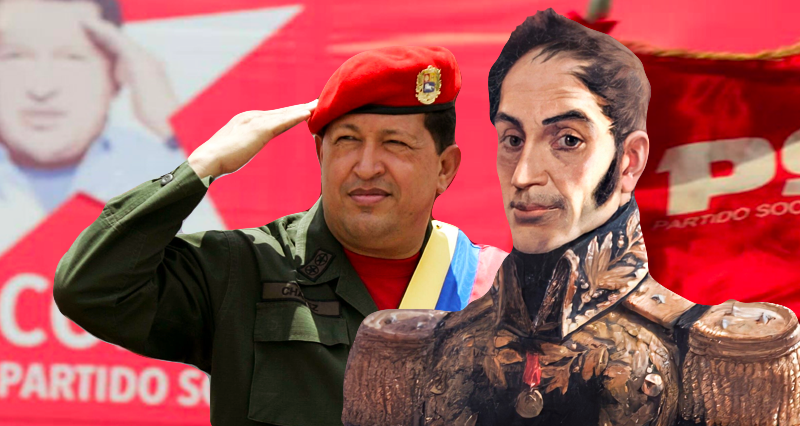By Jacobo Torres de León.
Member of the Venezuelan National Assembly representing workers, member of the Vice-Presidency of the PSUV and International Coordinator of the Bolivarian Socialist Confederation of Workers (CBST).
Translation by Yunus Soner, subheadings were set by UWI.
Venezuela has advanced in the creation of the socialism of the 21st century, which was our legendary commander Hugo Chávez’ doctrinaire heritage. The content of this doctrine was to construct our socialism in the middle of a great confrontation with the neoliberal capitalism.
At the end of the 20th century, we faced the following scenery: the dismantling of the state and the conversion of the citizens in units of production and consumption controlled by transnational corporations. This was accompanied by the old neoliberal ideology that we were all in the same global village, where the networks of cities in a way rejected the existence of the nation-state. Concepts such as national identity, democracy and democratic actions turned in this context into actions of rebellion against the dominant system.
The first revolutionary act: constructing and sustaining national identity and the nation-state
Actually, Fidel Castro, our other supreme commander, once stated that the democratic act converted into the act of fighting against neoliberalism and its concept of dismantling the nation-state.
This position had led us to the construction and sustention of the national identity as a revolutionary act, as well protecting the integrity of our state. And of course, we faced the task of constructing an alternative model rejecting the neoliberal concept.
For some of the Latin American and Caribbean countries, this initiative resulted in the founding of the Bolivarian Alliance for the Peoples of Our America (ALBA), in clear rejection of the ALCA, the Free Trade Are of the Americas. The ALCA had been proposed by the United States and meant nothing less than the economic, political and cultural subordination of our countries to Washington as the continental or global hegemon.
Today, we have stopped being the so-called “backyard”. We here in Venezuela have introduced a new constitution in 1999, which our Supreme Commander Chávez called a step to “re-establish our republic”. This was the biggest rebellious act in that scenery in the beginning of the 21st Century.
Socialism of the 21st Century – with characteristics of Venezuela
In the evolution of the revolutionary process, our Supreme Commander proposed the “Construction of the Socialism of the 21st Century”. This proposal meant nothing more and nothing less than the construction of socialism in our country – a socialism in accordance with the characteristics of Venezuela.
We have always stated that each revolution has its own context and its own specific character. No revolution is like the other, this is the law of dialectics, and actually this enriches the global revolutionary practices.
In other words, Venezuela is not Russia, our revolution is not the Bolshevik Revolution, or the Chinese Revolution, or the Vietnamese Revolution, or the Cuban Revolution. Our revolution is the Venezuelan Revolution. And in this construction, we carry with us our culture, our peculiarities, our needs and our ways of doing things.
Let me recite the words of the Latin American thinker José Carlos Mariátegui, one of the leading, most enlightened Marxists in our continent from the beginning of the 20th century. He said that the construction of our ideology could not be a copy nor a rip-off, but only result of the heroic work of our people themselves. He said he would not understand a Marxism that does not speaking Quechua, the language of the origin people of Peru. We conclude from this statement our socialism has definitely to resemble us. We have constructed the constitution of 1999 within this context.
The capitalism model and system still persisting
Notwithstanding, the model and system still persisting in Venezuela is the capitalist system. We are taking important steps towards the construction of socialism – but these are not enough.
The Bolivarian Revolution has achieved with the last elections of November 21 a legitimate and solid hegemony in our country. We have in our hands the executive power, we own the legislative power almost completely: 256 of 277 national assembly members are from the Venezuelan United Socialist Party. And by gaining 20 governors of federal states in the last elections, we have received a confirmation of our dominance.
This all means that we have an absolute hegemony in the state. Therefore, I am convinced that time has come to bury this capitalist state in a way and carry forward a new concept of a socialist state.
This new socialist state must inevitably move forward with the construction of socialism. For instance, today our companies continue working on the basis of the vertical capitalism scheme. And we propose to convert them in socialist units.
Workers’ Productive Councils as the embryo of the new state
One of the tools that the President has provided is the Workers’ Productive Councils. These are for us the embryos of the new state and the new model of socialist leadership in the hands of workers. Their fundamental task is – beyond guaranteeing the production and productivity of our companies – check and control what is produced and make sure that the products arrive in best quality and conditions to the hands of our people.
These councils serve as the embryo of the new state within new, socialist and collective relations of production, without of course the state abandoning its responsibilities towards the society.
Here, workers and the state need to act collectively in the work of establishing socialism.
















Leave a Reply